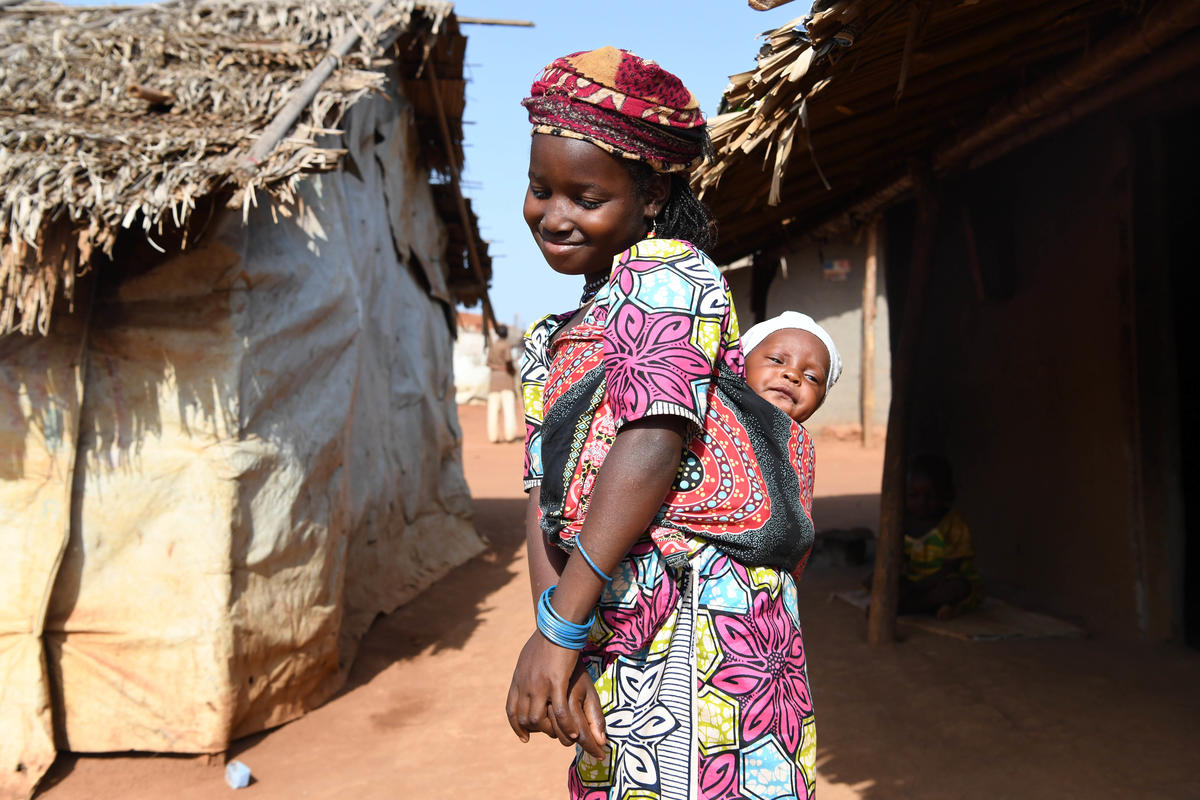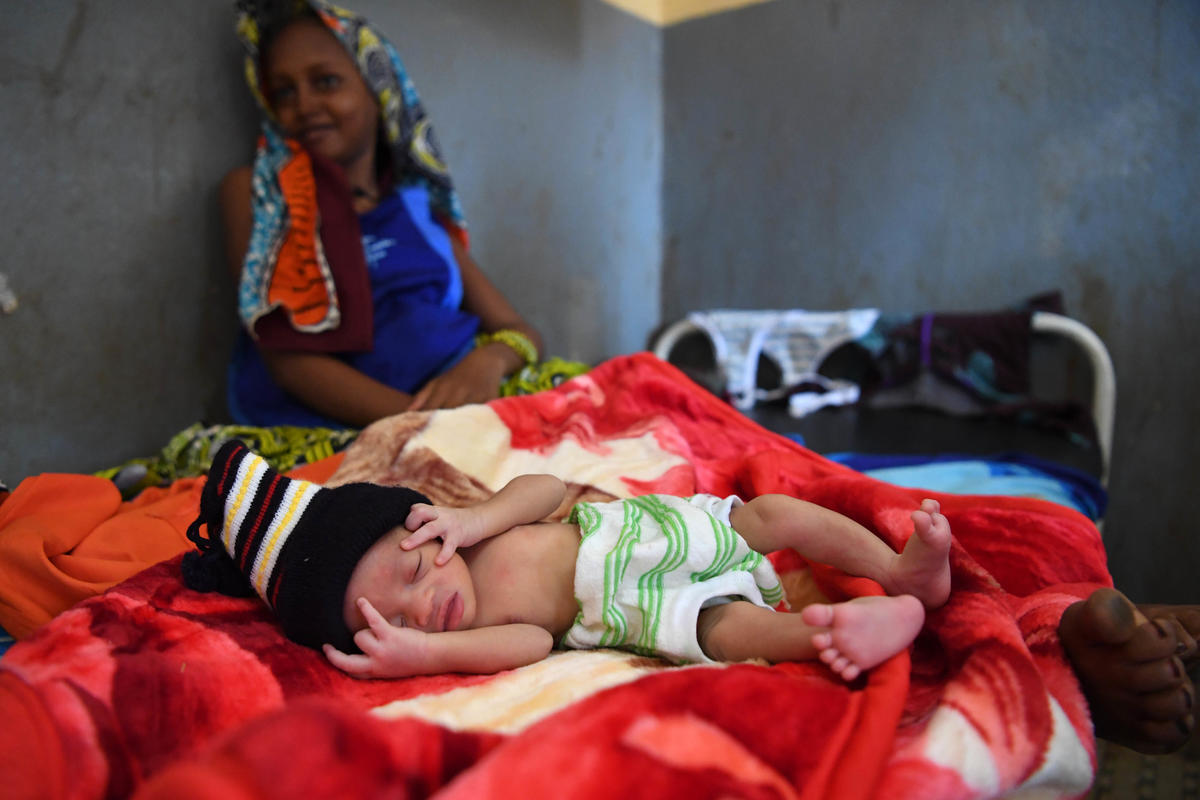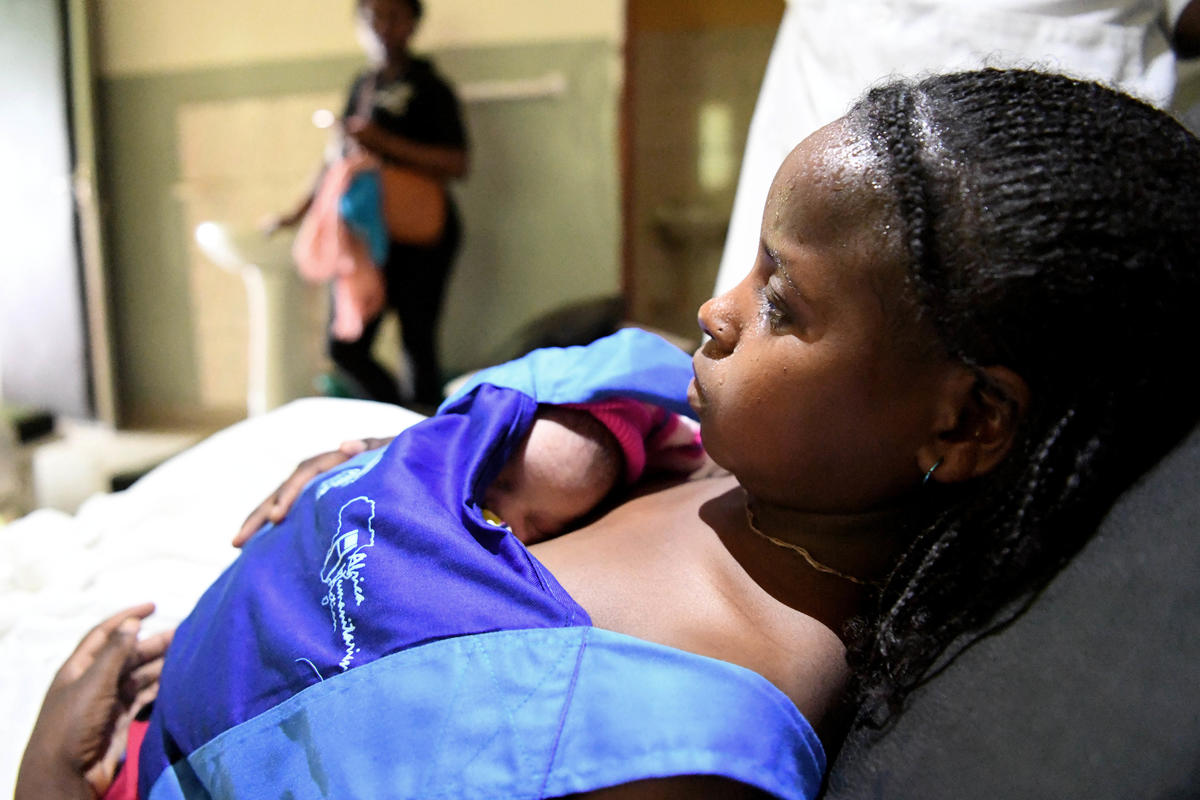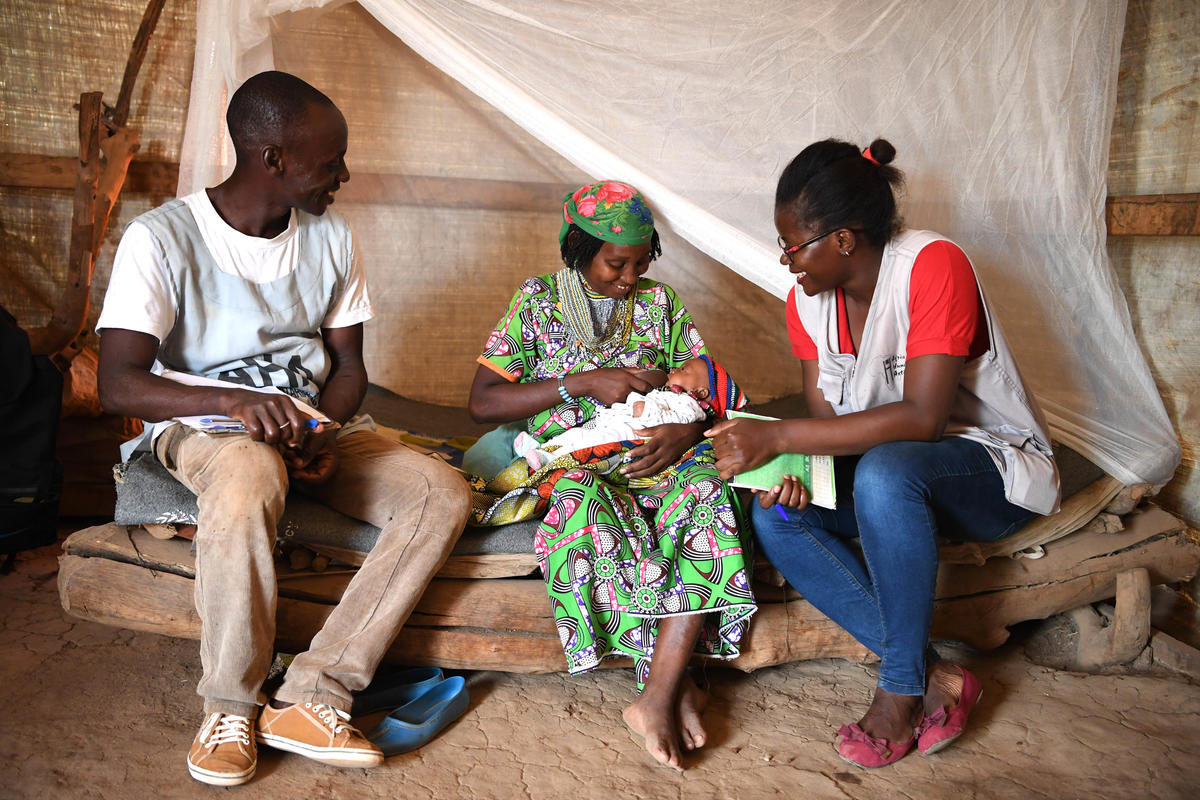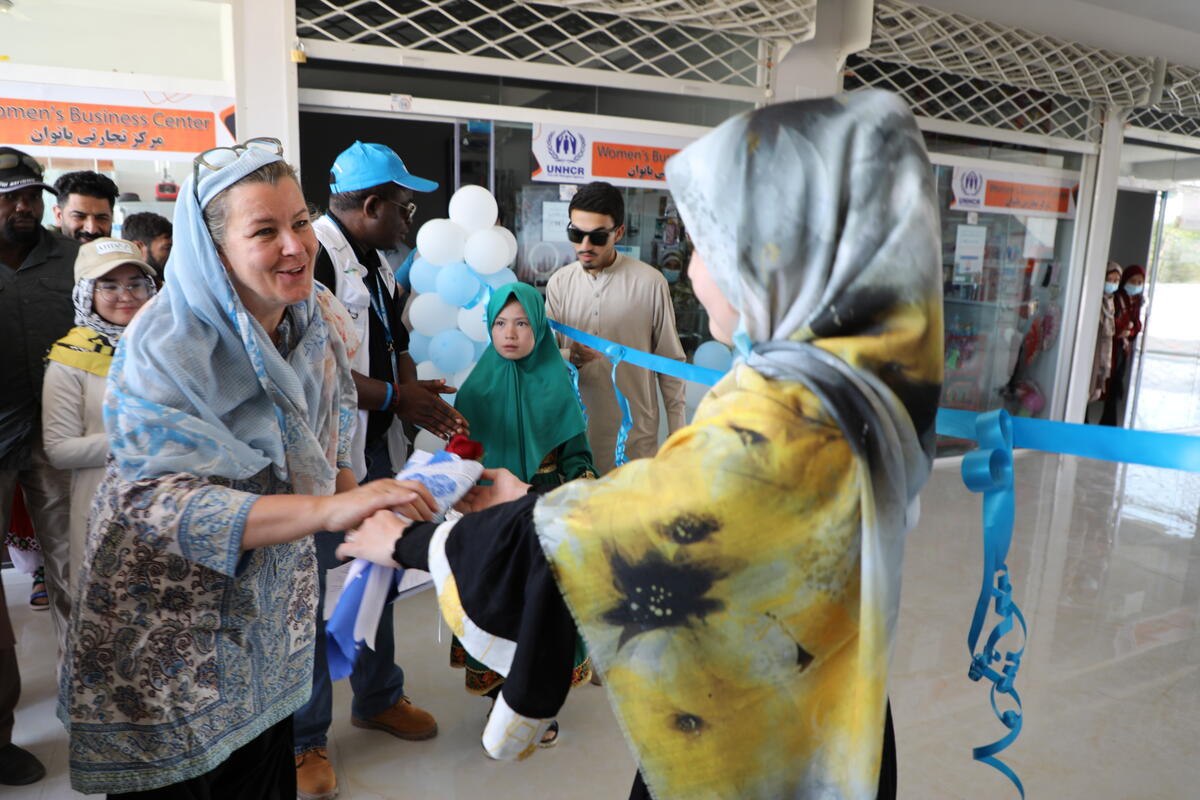'Kangaroo care' helps refugee moms in eastern Cameroon save pre-term babies
'Kangaroo care' helps refugee moms in eastern Cameroon save pre-term babies

Absatou has been surrounded by wildlife all her life. But until recently she had never even heard the word kangaroo, let alone seen the animal. Now, she is a huge fan of one of Australia’s most famous symbols.
Absatou is a 22-year-old refugee from Central African Republic, home to elephants, hippos, giraffes and a unique species of forest gorillas. Like thousands of her fellow countryfolk, she fled fighting a few years ago and has lived in Gado camp in eastern Cameroon ever since.
Cradling a newborn baby against her chest, Absatou said: “She was born two months early. She weighed less than two kilos. I thought I was going to lose her.”
She explained she has already lost two babies, both born prematurely.
This time, her baby’s life was saved because of something called ‘Kangaroo care’.
It is a simple yet ingenious form of neonatal care inspired by how kangaroos care for their young in the wild.
The mainstay of ‘Kangaroo care’ – which has saved the lives of many young babies – is constant skin-to-skin contact. Wrapped next to the mother’s chest, the baby maintains a stable body temperature from the natural heat generated by the mother’s body.
While most hospitals and health-care centres allow for the follow-up and care of premature babies, it is more challenging in remote areas like here, where the local hospital does not have constant electricity or a reliable generator and the lack of specialized care for pre-term babies puts them at high risk of death.
Before kangaroo care, mothers would fill up plastic bottles with hot water and place them around their pre-term babies to keep them warm. This was hardly effective as babies could easily get burnt or suffer a drop in temperature as the water cooled down.
“We regularly lost the babies due to hypothermia. We would panic when we delivered a premature baby of 800 or 900 grams,” explained Monique Meka, a midwife at the main Garoua Boulai district hospital, itself some 25 kilometres from Gado camp, which has been built in 2014 and hosts 25,000 people
She adds that most of the newborns would die on the way to the regional hospital in Bertoua, some four hours away, the only one in the region to have the capacity to manage with this type of cases.

Funded by the Bill & Melinda Gates Foundation, through UNHCR, the UN Refugee Agency, and its partner agency, Africa Humanitarian Action, the project has transformed neonatal care in the area, since its inception in late 2018.
Medical staff have been trained on the method and in turn, they train mothers like Absatou and Dourou, 23, who is closely holding her new son to her chest. At birth, he was barely two kilos. He has now doubled his weight.
“Beyond the body warmth, there is also the emotional part. The baby is constantly in contact with the mother who will immediately sense if something is wrong,” explained Monique.
According to the World Health Organization, over 20 million infants born annually, weigh less than 2.5 kilograms – over 96 per cent of them in developing countries.
Kangaroo care is recommended for the routine care of preterm infants and should be initiated in health-care facilities as soon as the newborns are clinically stable.
Dr. Benoit Kayembe, a UNHCR public health officer based in Yaounde, added that kangaroo care has helped mitigate many of the risks that accompany child birth.
“We had high risk of maternal deaths as premature babies could not handle the journey to the main hospital. Women used to give birth at home and used traditional medicine to heal, risking more infections,” he explains.
He adds that the project, also known as ‘Saving Maternal and Newborn Lives’ has improved mothers’ access to health, increased training for health staff and increased the women’s understanding on the importance of delivering at a health centre.
“The women have gained confidence and this has helped us save many lives,” he added.
in addition, nearly 700 kangaroo kits – pouches made with special fabric that retains heat – have been distributed to mothers in six refugee camps in eastern Cameroon. However, the needs are still enormous. Only six out of the 42 health centres that UNHCR supports in eastern Cameroon are benefiting from the project.
At Mbile health centre, a group of young mothers are clustered together in two small delivery rooms. Four young mothers rest after delivering a few days before. They all look tired and malnourished.
“I do not have milk to give my twins and no money to buy some,” explained Salamatou, a mother of seven.
The numbers clearly outweigh the limited space and lack of sufficient food leading to malnutrition is a constant issue for most of the women.
“This project has had a big impact and we hope to see it extended,” sayid Kayembe.



